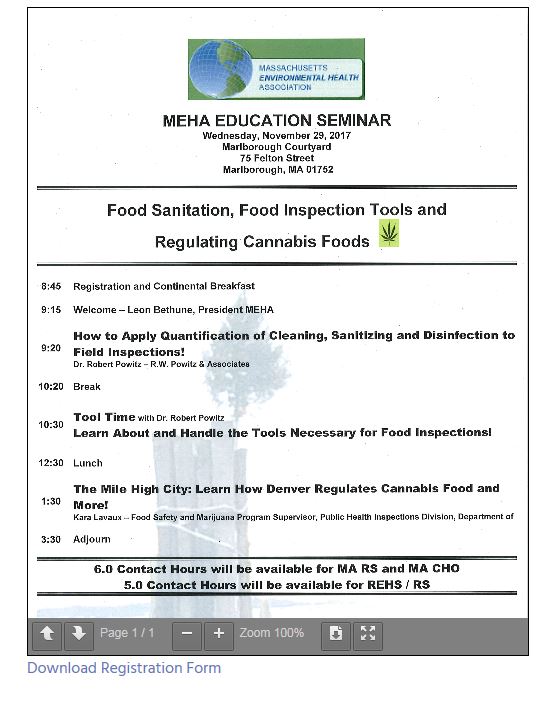Does measuring outcomes feel overwhelming and a necessary evil? All too often evaluations are static exercises that are completed for grant proposals and funder reports. In actuality, program evaluation can provide an exciting way to help your organization become more responsive to your constituents’ needs and help you improve your programs! This highly interactive, practical workshop will help you design an evaluation system that helps you identify and measure meaningful program outcomes, helping you to better meet your mission.
For information, visit this page.
Being able to make an effective presentation is critical in today’s world. An effective PowerPoint can be the difference in how your audience leaves your presentation. Everyone talks when they leave a presentation and contracts are won and lost based on how your presentation is received. A strong PowerPoint skill set helps employer productivity while ensuring that employees maximize their career goals.
The current opioid epidemic in the United States is not only a threat to the lives and the health of opioid misusers, but is an enormous challenge for those responding to the epidemic. We seek to provide a deeper understanding of the origins of substance misuse, how it has been and might be interrupted and prevented and how to support your own needs in working with opioid users.
For more information, visit here.
This training is presented by the Community Health Training Institute. There will be a morning and afternoon session. Participants are encouraged to attend both the morning and afternoon sessions and there will be a networking brown bag lunch from 12 PM to 1 PM in which attendees from both sessions are welcome to participate in.
Attendance for both sessions is not required.
The morning session’s topics include coalition purpose, vision, shared goals, and language. The afternoon session will cover defined structure, governance, and leadership, roles of coalition members.
For more information on the events, visit here and here.
Power and Privilege in Health Equity
Thurs. March 15, 2018
Time: 9:00am – 12:00pm
Presented by the Community Health Training Institute
Register
Note: This training will also be offered Saturday, April 28 in Boston, MA. Register for that training here
Topics: Defining privilege; identifying power influences; leveraging power positively in community work
 Description: This training will provide participants with an opportunity to examine critical questions about their personal relationship with power and privilege. What is privilege? How does it manifest in relational and professional dynamics? How do we leverage power, knowingly or unknowingly, to influence conflict or negotiate situations? This training will help facilitate an exploration of self-identity and how to build on that self-awareness to help set the tone for positive professional relationships and work in the broader community. This training will also discuss how to recognize the privilege that some of us hold and use that understanding to empower others and make connections across difference.
Description: This training will provide participants with an opportunity to examine critical questions about their personal relationship with power and privilege. What is privilege? How does it manifest in relational and professional dynamics? How do we leverage power, knowingly or unknowingly, to influence conflict or negotiate situations? This training will help facilitate an exploration of self-identity and how to build on that self-awareness to help set the tone for positive professional relationships and work in the broader community. This training will also discuss how to recognize the privilege that some of us hold and use that understanding to empower others and make connections across difference.
Audience: Individuals or teams working towards community health who may be new to discussing power and cultural dynamics in the context of their community work, or those seeking a refresher.
Learning Objectives: Participants completing this training will be able to:
- Define power and privilege and how they play a role in their everyday experiences and interactions.
- Identify ways in which power influences their relationships and experiences within the community.
- Identify at least two strategies for leveraging their power positively in their community work.
Trainer: Mo Barbosa (HRiA) and Lori Lobenstine (ds4si)
This training addresses the following MA DPH Coalition Criteria:
- Consistency with MA DPH’s goals and priorities
- Participation from key stakeholders (individuals and organizations that have a vested stake or interest in a program or policy initiative, e.g. it will impact them directly)
- Membership that is reflective of the community
- Shared vision including a focus on reducing health disparities and promoting health equity
We hope you’ll join us for a networking brown bag lunch from 12:00 pm – 1:00 pm before the afternoon session, Racial Equity, begins.
Location TBD, Worcester, MA
Description: Defining power and privilege, identifying power influences; leveraging power positively in community work

 Description: This training will provide participants with an opportunity to examine critical questions about their personal relationship with power and privilege. What is privilege? How does it manifest in relational and professional dynamics? How do we leverage power, knowingly or unknowingly, to influence conflict or negotiate situations? This training will help facilitate an exploration of self-identity and how to build on that self-awareness to help set the tone for positive professional relationships and work in the broader community. This training will also discuss how to recognize the privilege that some of us hold and use that understanding to empower others and make connections across difference.
Description: This training will provide participants with an opportunity to examine critical questions about their personal relationship with power and privilege. What is privilege? How does it manifest in relational and professional dynamics? How do we leverage power, knowingly or unknowingly, to influence conflict or negotiate situations? This training will help facilitate an exploration of self-identity and how to build on that self-awareness to help set the tone for positive professional relationships and work in the broader community. This training will also discuss how to recognize the privilege that some of us hold and use that understanding to empower others and make connections across difference.
